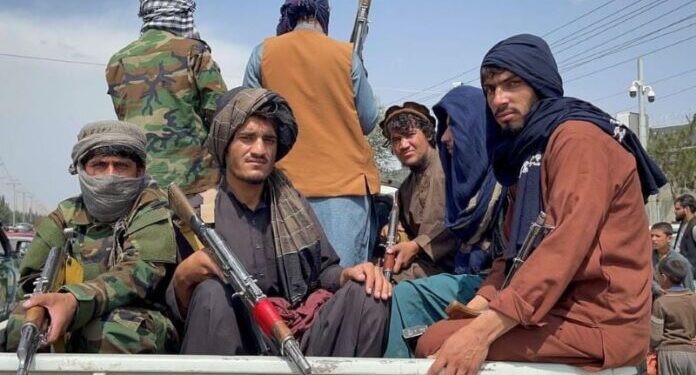Taliban’s stringent enforcement of their interpretation of Islamic law, Afghanistan’s Ministry for the Prevention of Vice and Propagation of Virtue has taken decisive action against those who fail to comply with their dress code and moral standards. The ministry’s annual operations update reveals that they removes over 280 clean-shaven men from security forces and detained more than 13,000 people for what they termed “immoral acts” over the past year. This move highlights the ongoing tension between the Taliban’s strict religious governance and individual freedoms in Afghanistan.
Enforcing Moral Codes Through Disciplinary Actions
The Taliban’s morality ministry has been actively implementing its vision of an Islamic society in Afghanistan. According to their report, approximately half of the 13,000 individuals detained for alleged immoral acts were released after 24 hours. However, the ministry did not provide a breakdown of the specific offenses or the gender of those detained. This lack of transparency has raised concerns among human rights organizations and the international community about the nature and extent of these detentions.
Beard Mandate: As Ministry Removes Over 280 Clean-Shave Men From Security Forces
The ministry’s actions extend beyond detentions to enforcing specific dress codes and cultural norms. Notably, they have removed over 280 clean-shaven men from security forces, demonstrating the Taliban’s commitment to their interpretation of Islamic appearance standards. Mohibullah Mokhlis, Director of Planning and Legislation at the ministry, revealed during a press conference that officials had destroyed 21,328 musical instruments in the past year. Additionally, they prevented thousands of computer operators from selling what they deemed “immoral and unethical” films in markets. These actions reflect a broader cultural crackdown aimed at aligning society with the Taliban’s religious vision.
Women’s Rights and Dress Code Enforcement
The morality ministry, which now occupies the former premises of the disbanded women’s ministry in Kabul, has faced significant criticism from human rights organizations and the United Nations for its restrictions on women and limitations on freedom of expression. The UN mission to Afghanistan has reported instances of ministry officials detaining women for short periods for not adhering to their interpretation of Islamic dress, as they removes over 280 clean-shave men from security forces. While the Taliban dismisses these allegations as “baseless,” the ministry is developing a new plan to ensure compliance with Islamic dress rules, particularly for women. This plan, overseen by the supreme spiritual leader based in Kandahar, includes requirements for women to cover their faces or wear all-enveloping burqas.
The ministry’s approach to enforcing these dress codes involves what they term “encouragement,” targeting women’s male family members rather than the women themselves. This strategy has raised concerns about the indirect pressure and potential family conflicts it may create. It’s worth noting that even before the Taliban takeover, most Afghan women in this conservative country covered their hair in public. However, some, especially in Kabul, did not typically cover their faces or wear burqas.
Amidst these restrictive measures, the ministry claims to have prevented over 200 cases of women being sold and more than 2,600 cases of violence against women. However, without independent verification, these claims are difficult to assess in the context of the overall treatment of women under Taliban rule.
The Taliban’s governance style, particularly through the actions of the Ministry for the Prevention of Vice and Propagation of Virtue, continues to be a source of international concern. The dismissal of security force members for not having beards, the destruction of musical instruments, and the restrictions on women’s dress and movement are seen as infringements on personal freedoms and human rights. The United Nations and various human rights organizations have consistently criticized these practices, viewing them as steps backward in terms of individual liberties and gender equality.
Despite these criticisms, the Taliban maintains that their rules are in line with their interpretation of Islamic law and Afghan customs. They argue that their governance model reflects the cultural and religious values of Afghanistan. However, this stance has led to increased isolation on the international stage and has complicated Afghanistan’s relationships with other nations and international bodies.
The enforcement of strict moral codes and dress standards also has economic implications. The crackdown on the sale of certain films and music, along with the destruction of musical instruments, impacts local businesses and cultural industries. This economic impact extends to the broader issue of women’s participation in the workforce and public life, which has been severely curtailed under Taliban rule.
As the ministry removes over 280 clean-shaven men from security forces and detain thousands for “immoral acts” reflects their ongoing efforts to shape Afghan society according to their strict interpretation of Islamic law. These actions, along with the destruction of cultural artifacts and the enforcement of stringent dress codes, especially for women, have significant implications for personal freedoms, human rights, and Afghanistan’s relationship with the international community. As the Taliban continues to consolidate its rule, the balance between religious governance and individual liberties remains a critical issue, with far-reaching consequences for the Afghan people and the country’s future.
For Updates
Related News
















